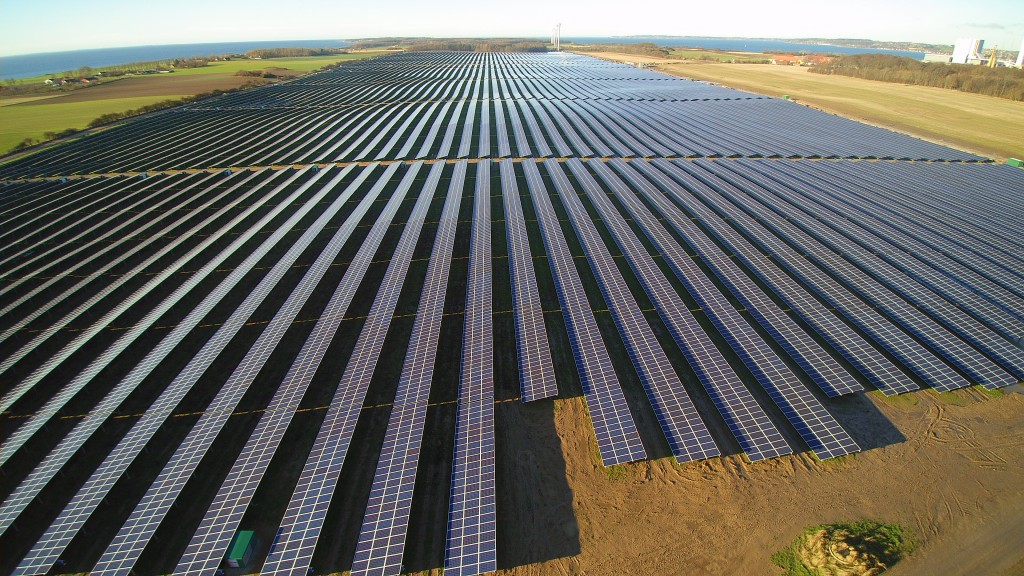Denmark’s Ministry of Energy, Climate and Buildings has submitted to public consultation a bill to introduce a tax on the power produced for self-consumption by PV installations under net metering.
The Minister of Energy Lars Chr. Lillehol said that the faster than expected development of solar energy throughout Denmark would lead to an expense of DKK 4.9 billion ($734.8 million) in the state budget. Through the announced tax, the government hopes to reduce the above-mentioned expense to DKK 3.7 billion ($558 million).
Planned solar energy development by 2020, the ministry stated, is 918 MW, while local energy operator Energinet.dk and the Danish Energy Agency (Energistyrelsen) are currently predicting that solar installations will reach up to 1,350 MW by then. Af of Mar. 3, 2017, the country’s cumulative installed PV capacity reached 854.8 MW, according to the latest statistics from Energinet.dk.
The new tax, if introduced, will be applied to all self-consumed power, which is currently exempt from VAT, the Public Service Obligations (PSO) levy that finances the country’s renewable energy incentives program, and other grid fees.
“Households, housing associations and businesses owning a PV power generator are currently taking indirect support by saving funds from taxes, that are necessary for the state budget,” Lillehol said in a press release.
Peter Ahm, the CEO of PA Energy and Danish representative to the International Energy Agency’s (IEA’s) PV Power Systems Programme, which recently revealed that there was the risk of new fees or retroactive changes for PV in Denmark, made the following statement: “This is a clear example of the problems created by the present scheme of energy taxes and levies. By private investments – without any subsidies – in PV systems the government will lose income from energy taxes, as the PV electricity in terms of self-consumption will substitute taxed electricity from the national grid. The retail price of electricity is about €0.30/kWh, of which about 65 % is various taxes. The minister of Energy, Climate and Buildings told last Friday at a PV conference the same story, and said the loss of income was unacceptable for the government. He further stated that the present energy taxation complex presented many problems for the political plans for a development towards a green energy system, and that the government had initiated an analysis hopefully leading to a more flexible energy-taxation complex. He could not indicate when this analysis would be completed.”
In December 2016, Lillehol decided to close the second phase of the incentive scheme for solar (the so-called ‘transitional model’), after revealing that there were 1,660 MW of PV projects under the scheme which were unapproved due to budget issues. The vast majority of these projects, the government stated at the time, was submitted for approval during 2016, after the transitional model was launched in late 2015. The minister claimed that, if approved, these projects would have resulted in an additional cost of DKK 4.5 billion ($659.8 million).
In December 2016, the Danish Parliament also approved the government decision to gradually abolish during the period 2017-22 the Public Service Obligations (PSO) levy, which finances the country’s renewable energy incentives program. Starting from 2023, eventual incentives for renewables, which are currently being financed by power consumers, should be paid with the state budget.
This content is protected by copyright and may not be reused. If you want to cooperate with us and would like to reuse some of our content, please contact: editors@pv-magazine.com.




Is Denmark crazy ? Taxing twice ? Once at purchasing the panels and second time for using them ????? You want to kill renewables ???
This happened in Spain, killed instantaneously solar investments security and investments and they had to roll it back. Spain is not yet recovering from that stupid experiment!
Electricity sales to be taxed as revenue can be understandable, but not your own consumptions! You can’t tax sun, air and water by Human Rights! Otherwise you could also tax all house windows, as those are massive passive solar panels!!! Crazy world!
It is not crazy, it is very sensible. Solar energy should of course be treated like other forms of energy, playing by the same rules as for example wind in Denmark.
The crazy thing is that they don’t tax emissions enough to make sure fossil fuels die quickly.
Poor Dans!
So if I plant a tree in my backyard to keep my house cool by shading it from the sun, thereby lowering my electric bill for cooling, would Denmark want me to pay a tax on the amount of cooling produced by shade? If I run on a treadmill to charge a battery, will they tax me for my run? I suggest the politicians look for sane ways to shore up their budget. Lets hope sane Danes fight back.
Completely gross. Here’s hoping Danish people simply refuse to pay the tax. Easy to refuse to pay it: you don’t install a meter and connect your panels directly to your house. They can’t force you to install a meter. What are they gonna do, cut off your grid electricity (ha ha ha!)
This shows that the government is run by brain-damaged idiots.
Is this some kind of joke?
This sounds like sometime Donald Trump would do, especially since climate change is a hoax…